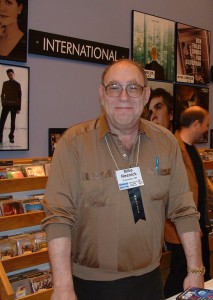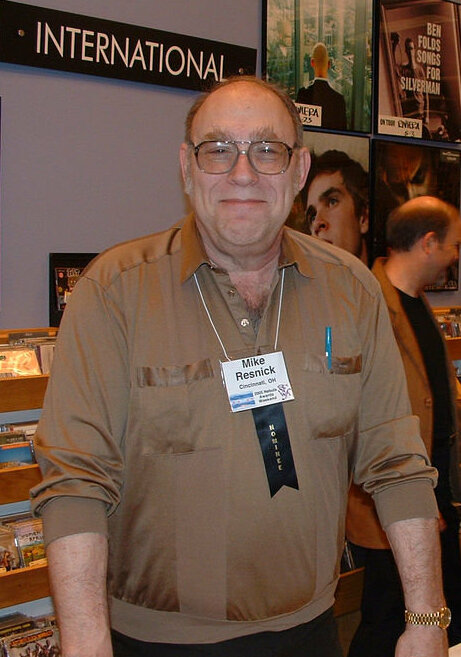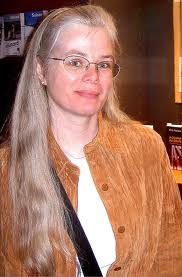Mike Resnick on “No Heavy-Lifting Sales”
 Gordy Dickson told me close to half a century ago that if you were good, and prolific, and an aggressive marketer, there would come a point 25 years into your career where you received a pleasant surprise (which is to say, a reprint or foreign sale) in your mail box every week, all for writing just those two words, ‘Mike’ and ‘Resnick’ on a contract.
Gordy Dickson told me close to half a century ago that if you were good, and prolific, and an aggressive marketer, there would come a point 25 years into your career where you received a pleasant surprise (which is to say, a reprint or foreign sale) in your mail box every week, all for writing just those two words, ‘Mike’ and ‘Resnick’ on a contract.

 In the 1990s, Mike Resnick launched more careers with his anthologies than Asimov’s, Analog, and F&SF combined. He’s at it again with Stellar Guild. He gives Diabolical Plots the inside story on the nature and process of anthologies.
In the 1990s, Mike Resnick launched more careers with his anthologies than Asimov’s, Analog, and F&SF combined. He’s at it again with Stellar Guild. He gives Diabolical Plots the inside story on the nature and process of anthologies. Jeanne Cavelos is a writer, editor, scientist, and teacher. Her love of science fiction led her to earn her MFA in creative writing. She moved into a career in publishing, becoming a senior editor at Bantam Doubleday Dell, where she created and launched the Abyss imprint of innovative horror and the Cutting Edge imprint of noir literary fiction. She also ran the science fiction/fantasy publishing program. In addition, she edited a wide range of fiction and nonfiction. In her eight years in New York publishing, she edited numerous award-winning and best-selling authors and gained a reputation for discovering and nurturing new writers. Jeanne won the World Fantasy Award for her editing.
Jeanne Cavelos is a writer, editor, scientist, and teacher. Her love of science fiction led her to earn her MFA in creative writing. She moved into a career in publishing, becoming a senior editor at Bantam Doubleday Dell, where she created and launched the Abyss imprint of innovative horror and the Cutting Edge imprint of noir literary fiction. She also ran the science fiction/fantasy publishing program. In addition, she edited a wide range of fiction and nonfiction. In her eight years in New York publishing, she edited numerous award-winning and best-selling authors and gained a reputation for discovering and nurturing new writers. Jeanne won the World Fantasy Award for her editing. Workshop instructors Kristine Kathryn Rusch and Dean Wesley Smith take a different approach to coaching writers:
Workshop instructors Kristine Kathryn Rusch and Dean Wesley Smith take a different approach to coaching writers: